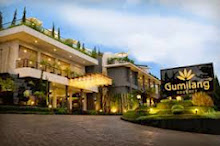Contoh Pidato - A murderer is less to fear. The traitor is the plague," declared Roman statesman and orator Marcus Tullius Cicero over 2,000 years ago. Accusations of treachery still sting. But in Sri Lanka in recent decades, the term "traitor" has been flung about with wild abandon, raising questions about what loyalty people might owe to a nation and what this might mean in practice.
Naskah Pidato - Last year, a civil war ended with the crushing defeat of the Liberation Tigers of Tamil Eelam (LTTE), but this has not brought national harmony and reconciliation. Instead, an authoritarian culture has taken hold in which disagreement with the powers that be is labelled as disloyalty to the nation. The general who led the successful military campaign against the LTTE, Sarath Fonseka, became highly critical of the current president, Mahinda Rajapakse, who with his brother Gotabhaya, the defence secretary, also claimed credit for the victory.
Fonseka unsuccessfully stood as an opposition candidate in this year's presidential elections. Some government supporters labelled him as a traitor, and he was arrested. In the runup to parliamentary elections, he is facing trial by a military court.
A political culture built on mistrust of diversity and disagreement took hold 30 years ago. The government tried to tap into fear of and rivalry towards Tamils among the Sinhalese majority. In the world view promoted by industries minister, Cyril Mathew, in his 1979 work Diabolical Conspiracy, those not Sinhalese Buddhists were particularly prone to be treacherous. In the days of British rule "a very special partiality was shown to the minorities and they were given valuable and privileged opportunities. In this crafty way the British rulers were able to obtain all the information regarding the efforts of the majority people for a united stand, from the beholden and grateful minority communities". This was a gross distortion of history, but helped to fuel suspicion and supposedly justify abuses of power. Harsh repression alienated many Tamil youth, swelling the ranks of an initially tiny militant movement fighting for a separate state.
It was not just ethnic and religious minorities who came under attack: anyone who questioned the regime risked arrest or death. After unleashing violence against Tamil civilians in 1983, the government banned much of the opposition including the main Tamil party and Janatha Vimukthi Peramuna (JVP), supported largely by discontented Sinhalese youth, supposedly for undermining national security.
This fuelled support for the Tamil nationalist movement as well as a JVP rebellion. Soon the JVP, too, was labelling those its leaders disapproved of as traitors and violently targeting them The LTTE also set out to stamp its authority over the Tamil people, detaining or killing "traitors" – rival Tamil nationalists, moderates and anyone suspected of being critical of its policies, which included terrorist attacks, ethnic cleansing and child conscription.
Meanwhile, human rights activists such as idealistic young opposition MP Rajapakse risked their safety to publicise the regime's injustices internationally and try to restore a less violent and divisive political culture.
Now in power, it is ironic that Rajapakse is promoting the kind of repression he once opposed so strongly, further dividing rather than reconciling Sri Lankans. Critics of the government are labelled as traitors, human rights and democracy undermined.
In any country where quasi-religious adoration of "the nation" takes hold, there is a risk this may tip over into unquestioning obedience to its leaders. Ironically, this may harm rather than protect its people and what is best in its heritage. The kind of patriotism needed by Sri Lanka and other countries today is that described by human rights defender Clarence Darrow: "True patriotism hates injustice in its own land more than anywhere else."

Tidak ada komentar:
Posting Komentar